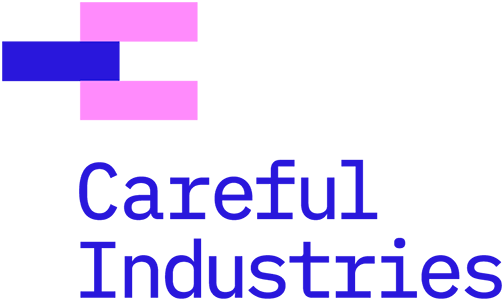Civil Society Foresight Observatory — Weeknotes 1
Welcome to the first instalment of the Civil Society Foresight Observatory weeknotes! The Observatory has now officially been underway for two weeks, and we’ve been deep in planning and reading mode. With this project, we are trying to do something different than many other foresight projects we’ve seen before. As Rachel said in her post announcing the observatory, “The aim of the Observatory is to weave together formal foresight practices with other lived and learned experience to create a new foresight commons.” While this makes the Observatory an exciting and unique project, it’s also more challenging because right now pretty much everything is open-ended, and since this is a short-term project we have to figure out how to narrow our focus pretty quickly in order to come out with something useful at the end of our 6 months.
"Pepe Silvia" does not exist.
This week, we spent most of our time working on a literature review, which will help us flesh out how the Observatory fits into the broader ecosystem of foresight, civil society, funding, and policy currently in play. We’ve been looking at getting a better sense of the social climate and public attitudes and sentiments towards different issues, with a particular focus on how the pandemic has possibly changed or otherwise impacted people’s thinking on these issues. Trying to get past what mainstream media tells us are the most prominent issues and their panic over the so-called ‘culture wars’ to get a better glimpse at what people are actually thinking.
Right now, we are focusing on defining what we even mean by foresight. I started approaching this by reading up on archives — of course — and different ways of understanding ‘the future’, from the perspectives of communities who are often left out of both. I was really moved by Black Quantum Futurism’s recent piece in e-flux on time capsules, and memory, and who is left out of our imaginations of ‘the future’. We are clear that we are trying to frame this project bottom up rather than top down and I’ve been thinking a lot about how we actually do that in practice in ways that are mindful of who we are including (or not) and why, and how existing power structures shape our ideas and imaginations of how we even approach thinking about the future.
Mind map of my initial thinking as I began the project.
Through the grapevine that is research, I’ve gone from reading about archives, to alternative futures, to science fiction writing and worldbuilding, to social constructionism and poststructuralism methodologies for foresight. What’s coming up for me through this exploration is really thinking about how to acknowledge and deconstruct (Inayatullah 1998) our assumptions about the world and all the possible futures that could exist.
One of the things we’re thinking about this week is: how do we frame our questions in ways that make these assumptions explicit without closing off or otherwise limiting what participants have to offer? As Anna described this morning, we are trying to offer “a pragmatic approach to a plurality of futures” — creating new openings for new visions toward new paths forward.



